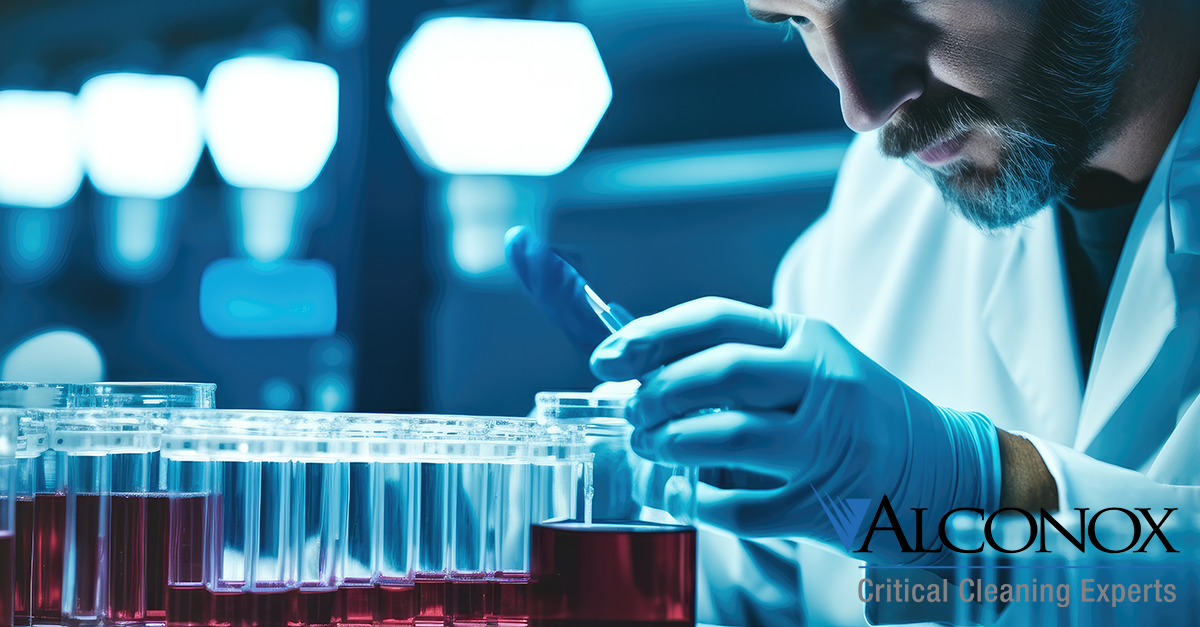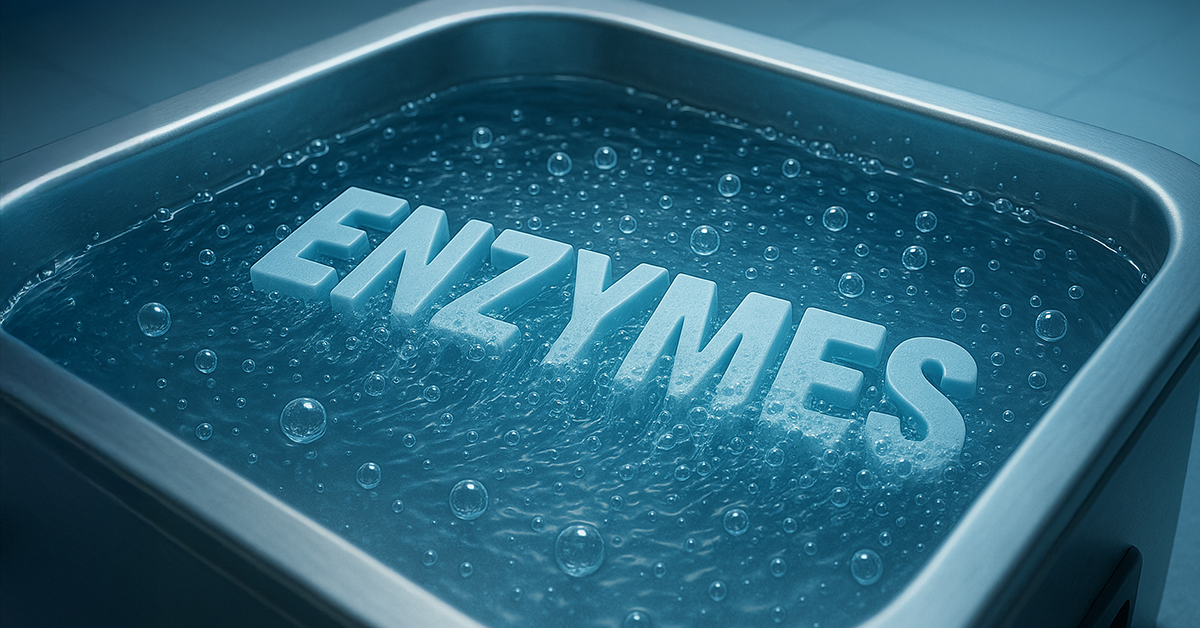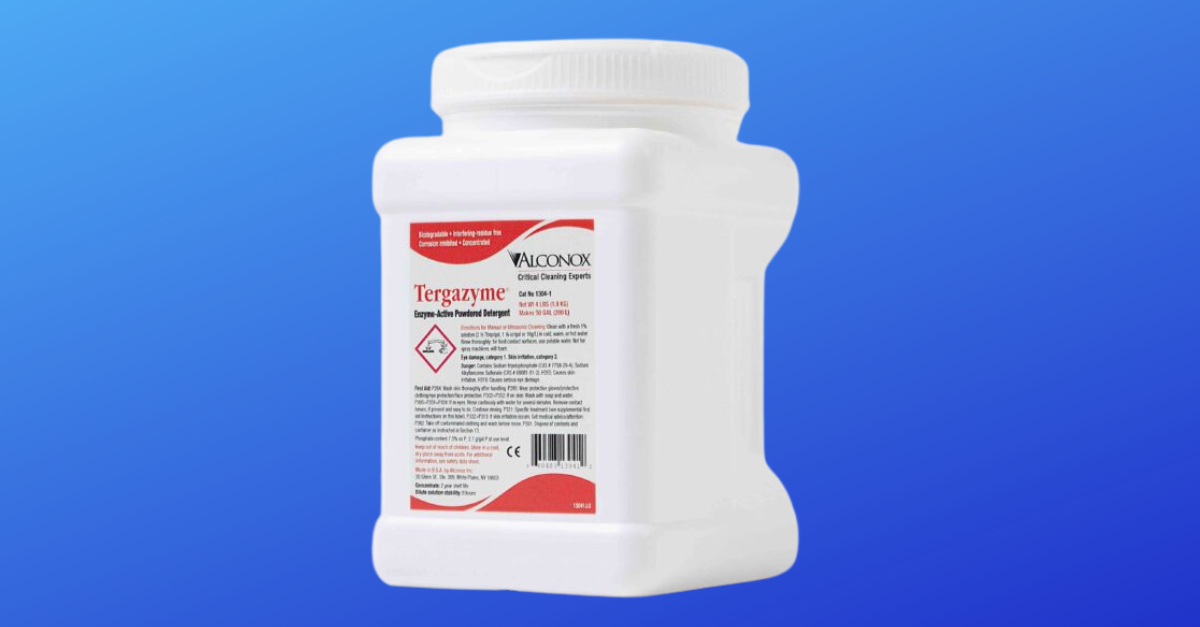
Q: How do you know when to use an enzymatic detergent as opposed to a non-enzymatic detergent?
A: This is an excellent question, and the answer hinges on the specific type of soil you are trying to remove and the nature of the surface being cleaned. Here’s a detailed, step-by-step response to guide you through the decision-making process.
Step 1: Assess the Type of Soil
The primary reason for choosing a protein enzymatic detergent over a non-enzymatic one would be the presence of proteinaceous soils (proteins, blood, bodily fluids) or other materials that enzymes can specifically break down.
Recommendation: If you’re dealing with tough biological soils, the Tergazyme® Enzyme-Active Powdered Detergent – with protease enzymes – would be an excellent choice for its ability to digest and remove proteins effectively.
Step 2: Consider Material Compatibility
Different materials can react variably to different cleaning agents. It’s crucial to choose a detergent that preserves the integrity of the item being cleaned. In other words, compatibility with the substrate to be cleaned.
Recommendation: In cases where material compatibility is a concern, a mild yet powerful option like Liquinox® Critical Cleaning Liquid Detergent, a non-enzymatic detergent, could be appropriate. As well as other detergents. Alconox Inc. experts are happy to work with you on compatibility inquires for your specific application. Note that Tergazyme is a widely compatible mildly alkaline detergent.
Step 3: Evaluate Cleaning Method
The cleaning method, whether manual, ultrasonic, CIP (Clean-in-Place), or machine washing will influence your choice of detergent.
Recommendation: For manual and ultrasonic cleaning of laboratory glassware, instruments, process equipment, etc. with largely organic residues, the above mentioned Liquinox or Alconox® Powdered Precision Cleaner can be a great answer. When proteinaceous residues are in play, then Tergazyme would be the solution with its enhanced ability to not just clean organic residues, but biologic ones as well.
For CIP, automatic washing, and other high pressure spray applications, low foaming options are needed and protein residue can be addressed by low foaming detergents with oxidation cleaning mechanisms like Alcojet® Low Foaming Powdered Detergent or chelation/hydrolysis cleaning mechanisms like Detojet® Low Foaming Liquid Detergent.
Step 4: Review Temperature and pH Requirements
Enzymatic detergents often require specific temperatures to preserve the enzymes, and their activity can be highly pH-dependent.
Recommendation: For Tergazyme detergent, we recommend cleaning at or below 55C/130F, to ensure enzyme activity is not disrupted. Adding other chemicals,, can shift the pH and drop activity of the enzymes. For cleaning application requiring higher temperature the above mentioned cleaners utilizing oxidation will be of great use.
Step 5: Environmental and Safety Considerations
The disposal of cleaning solutions and occupational exposure limits may guide your choice between enzymatic and non-enzymatic options.
Recommendation: Our detergents are biodegradable and drain safe. Consult with you local EHS Manager or equivalent for regulations specific to your municipality. Toxicology reports are available upon request.
Conclusion:
Determining whether an enzymatic or non-enzymatic detergent is right for your application requires a comprehensive assessment of the soil type, material compatibility, cleaning methodology, temperature and pH constraints, as well as environmental and safety considerations. Alconox Inc. offers an array of expert-formulated detergents, and we recommend selecting a product that directly addresses the challenge presented by your specific critical cleaning application.
Expert Advice:
When faced with uncertainty regarding the appropriate cleaning agent for your application, consulting with a knowledgeable Alconox Inc. representative can provide additional guidance tailored to your specific needs. With our global presence and experience, we are equipped to offer personalized solutions to ensure the efficacy and safety of your critical cleaning processes.
To request these or any Alconox Inc. detergents for free, please complete the questionnaire at Get Sample. For more information about any one of our Alconox Inc. detergents, consult the technical bulletin for each product. Or click here to access each of our detergent’s Safety Data Sheets.
Do you have a critical cleaning question for the experts at Alconox Inc.? Search TechNotes to see if it’s been answered before or Ask Alconox.



